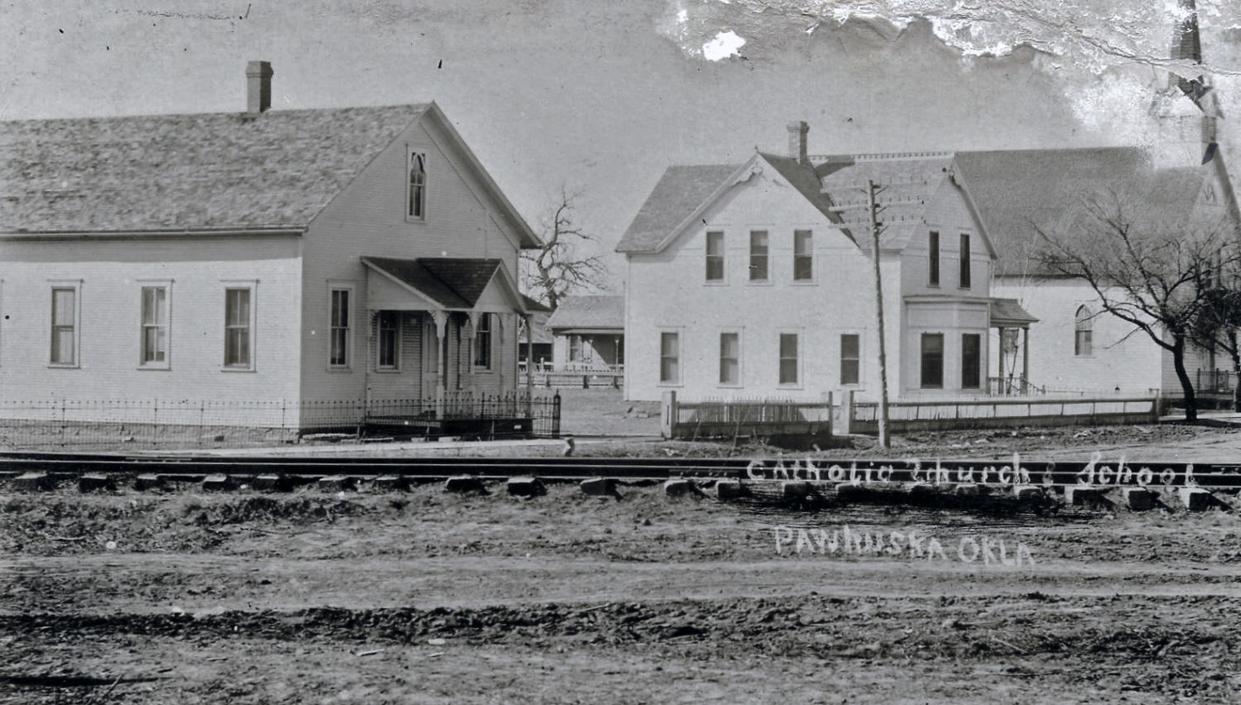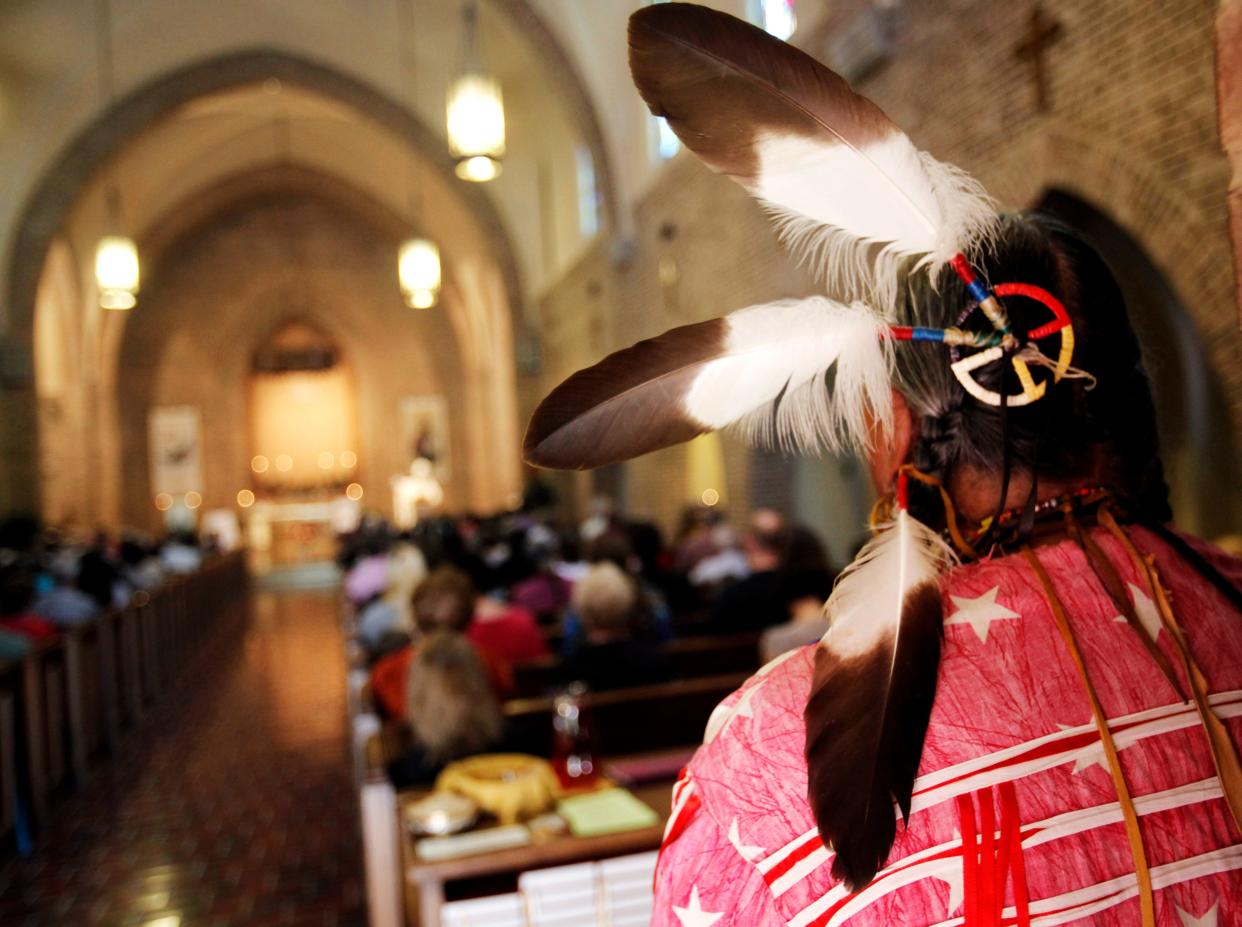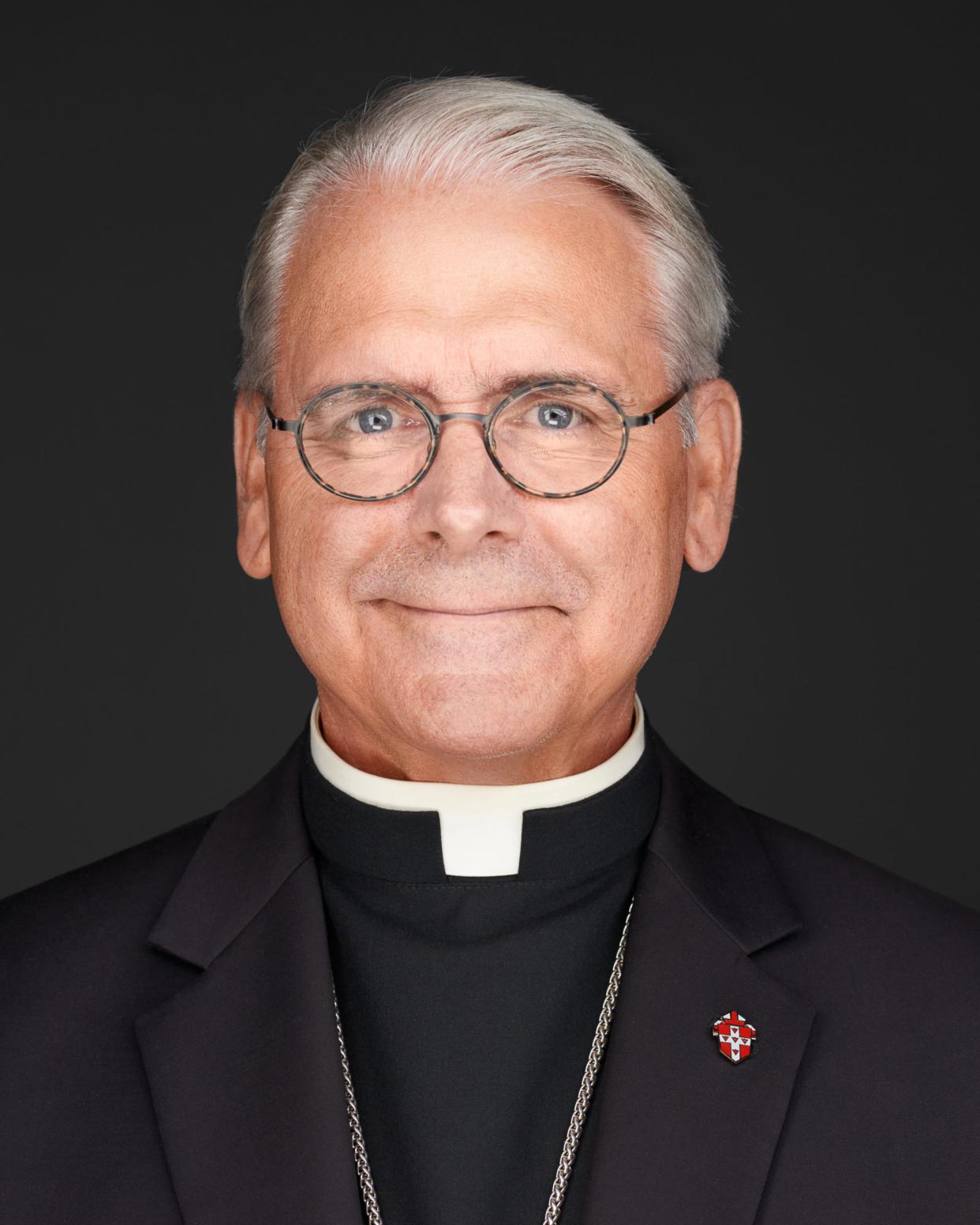'Action steps' in new Catholic Church guide on Indigenous outreach underway in Oklahoma

The Catholic Church in Oklahoma is already in the midst of some outreach efforts recommended in a new guide focusing on ministry with Indigenous people.
The recommendations are outlined in "Keeping Christ's Sacred Promise: A Pastoral Framework for Indigenous Ministry," a new document recently approved by the U.S. Conference of Catholic Bishops at the group's spring plenary assembly June 12-14 in Kentucky.
The document included the Church's apology for "multigenerational trauma" inflicted on Native and Indigenous communities.
"Sadly, many Indigenous Catholics have felt a sense of abandonment in their relationship with Church leaders due to a lack of understanding of their unique cultural needs," the bishops said.
"We apologize for the failure to nurture, strengthen, honor, recognize, and appreciate those entrusted to our pastoral care."
More: Oklahoma-made Native American drama 'Fancy Dance,' starring Lily Gladstone, bows in theaters
It was also meant to serve as a resource to help Catholic dioceses, Catholic Native organizations, schools, missions and parishes as they navigate cultural differences among Native and Indigenous tribes and nations.
"Keeping Christ's Sacred Promise" included 17 "action steps" to further develop Native/Indigenous ministry. These include: developing a process for listening sessions with local Native communities; building relationships between dioceses, parishes and tribal leadership; where applicable, developing resources to help alleviate trauma associated with the boarding school period; and supporting initiatives that promote Native languages and cultures.

"We acknowledge the great diversity of tribes, languages and cultural traditions that exist among theIndigenous populations in the United States of America and its territories," the bishops wrote in the new document.
"We know that one size does not fit all and affirm that any pastoral plans of action need to start with CatholicNatives themselves and be developed at the local level."
Many of these recommended actions have already been incorporated into the Oklahoma Catholic Church's Oklahoma Catholic Native Schools Project that was launched in fall 2021 by the Archdiocese of Oklahoma City, Tulsa Diocese and St. Gregory's Abbey. The project continues this summer with community dinners that will bring Catholic leaders and Native communities together in July in places including Ardmore and Pawhuska. Oral history sessions with former Oklahoma Native American boarding school students and their families also are being conducted in those cities.
More: Is religious liberty dwindling in Oklahoma? How the state has become a legal battleground
The project focuses on Catholic boarding schools for Native Americans that were operated from 1880 to 1965 in the state. It came in the wake of a reckoning that began in Canada after the May 2021 discovery of 215 unmarked graves of Indigenous children by Canada's Tk’emlúps te Secwepemc First Nation at the Kamloops Indian Residential School in British Columbia.
In addition to the community dinners and oral history sessions, listening sessions have been conducted giving former Oklahoma Native boarding school students or their descendants opportunities to share their stories.
The Oklahoma Catholic organizations also worked with Marquette University in Milwaukee to conduct research on Native American boarding schools in the state. Marquette holds the archives for the Bureau of Catholic Indian Missions. Bryan Rindfleisch, a Marquette professor who specializes in Native American history and studies, has said his completed research is expected to be published in a book sometime this year.
The Most Rev. Paul S. Coakley, archbishop of the Archdiocese of Oklahoma City and the USCCB's secretary, and the Most Rev. David Konderla, bishop of the Tulsa Diocese, could not be reached for comment.

Focus on reconciliation, healing
In a news release, the Most Rev. Chad Zielinski, bishop of the Diocese of New Ulm, Minnesota, and current chairman of the USCCB's subcommittee on Native American affairs, said the new guide covers a broad range of issues and concerns, including missionary discipleship, evangelization, the role of catechesis, sacramental and liturgical questions, youth and young adult ministries, and social justice issues, plus it also addresses difficult topics such as reconciliation for any mistreatment and wrongs done during the boarding school period.
According to the USCCB, the conference's subcommittee on Native American affairs initially began talking with Native Catholic leaders in 2019, and then worked over the last several years with leaders of Catholic Native groups to develop the new guide.
In 2021, Coakley, then chairman of the USCCB's Domestic Peace, Justice and Human Development, along with the Bishop James S. Wall, then chairman of the USCCB's subcommittee on Native American affairs, wrote a letter to the bishops recommending that they focus on being transparent, building relationships, listening and being accountable.
The pair's recommendations were made to encourage bishops to engage in dialogue with their local Native and Indigenous communities as a "meaningful step toward the ongoing journey of healing and reconciliation."
"A sense of trust must first be cultivated before the Church’s desire for reconciliation with the Native American community can be met," the two bishops wrote.
This article originally appeared on Oklahoman: New Catholic guide lists ways to develop Native/Indigenous ministry
